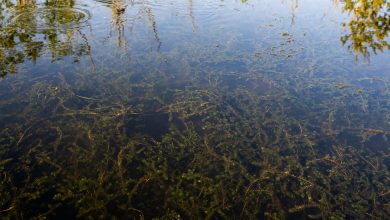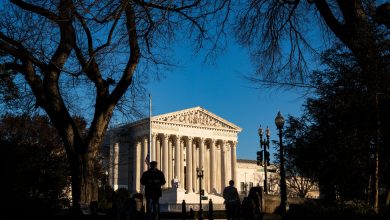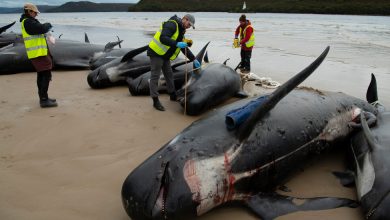Covid’s Relentless Strain on a Melbourne Hospital

The Australia Letter is a weekly newsletter from our Australia bureau. Sign up to get it by email.
This week’s issue is written by Amaali Loukange, an emergency physician at the Royal Melbourne Hospital.
One of the most loved emergency physicians in our department retired two weeks ago. It was earlier than expected, and given the heightened emotions of Covid and lockdown, the news brought many of us to tears — especially because some of us spent the last few weeks trying to convince him to stay. Richard was the first person to train as a specialized emergency physician in Australia, and it seems wrong that Covid should end his career. But work had become too stressful, isolating and difficult to bear when age and comorbidities increase his Covid risks. His story is not unique, and plays out across the disciplines in health care as Covid takes its relentless toll on our well-being and our work force.
The personal protective equipment, the PPE, is tough. There are times when, with my glasses fogged up, the shield dripping with condensation, I feel like ripping it all off and screaming for air. During a resuscitation, the normally quiet and controlled room is now full of noise as everyone speaks 10 decibels louder just to be heard. Previously easy conversations with patients become fractious as I try to project through the PPE and my tone sharpens because it’s not my normal range. At the end of a shift, an eviscerating headache and sore muscles are now the norm.
The PPE traps us safe within a silo, unable to reach out, to share a joke with one another, to gossip in whispers. The camaraderie of emergency medicine is receding. We try to push the grief away for later and wonder whether this will be the norm for years to come.
Emergency departments are usually open spaces with clear lines of sight, but now our department at the Royal Melbourne Hospital is changing. Cubicles are enclosed with doors, whole areas are cordoned off to house Covid patients, and the department feels like it’s getting smaller even as the patient numbers increase exponentially. A sense of claustrophobia builds with each passing shift.
The strain on nursing staff is particularly acute. Before the pandemic, when visitors were allowed, family provided support, translation and context to the patient’s state. Now, with visitors severely restricted, the burden of caring falls mostly on our nurses. I walk into a cubicle and witness a young girl crying, struggling to bear the pain of a leukemia diagnosis — the nurse holds her close, substituting for the family not allowed into the department. I ask a nurse if she’s trying to find the pulse of a dying patient and she says in an undertone, “No, I’m just holding her hand.” The patient’s family did not want to come to the hospital for fear of Covid.
Then there is the disease itself. Thankfully, it is mostly easy to recognize — even without a Covid test. Its constellation of symptoms are obvious and specific: the chest pain like sharp little knives with each breath, the severe headache and muscle pains, the dehydration. Patients come in at first diagnosis because they feel like they’re dying. At least for the ones who present to my emergency department, it is definitely not just the flu.
From a purely medical perspective, Covid is fascinating. To be on the frontline, at a time when we are still discovering the nuances of treatment for a new disease, feels like a privilege. To be safe, treating these patients with adequate PPE and effective vaccination, in a hospital which pivots to stay just ahead of the disease, feels like a miracle. Every day I am thankful that the real surge in Covid infection is happening now and not in 2020.
At the moment, a majority of our patients are unvaccinated. Some of them were too young to be eligible, some don’t believe in the disease, and some are waiting for a better vaccine. Many don’t speak English and rely on their own communities for support. I feel that we have let them down. We haven’t integrated them enough to be able to reach them in a crisis.
For a lot of them, we are their only support now that they are ill. “They treat me like a leper!” a patient with Covid who had been isolating from her unvaccinated partner and children mournfully tells me. An unvaccinated woman calls me frantically about her son, whom I have just seen. “Please don’t send him home,” she pleads, “there’s no one to look after him.” I know she’s thinking of the young Covid-positive female in the news who died alone at home that day. To be able to help these patients at their most vulnerable, facing a disease which fills them with dread, is one of the silver linings of this pandemic.
Another is the black humor. Just as we are all closer to tears, the irreverent laughter is sometimes irrepressible. A patient almost walks into a Covid patient’s room, but, her hand at the door, she hesitates as the nurse shouts and lunges at her. The patient safely in her own room, we collapse into hysterics at the close call and the nurse’s reaction. Within a week the hospital changes its policy and provides N95 masks for all patients.
Now that Covid is finally here and we are on the edge of the precipice, the emotions run high. Behind us is the old way of emergency medicine, and ahead the unfamiliar and unknown.
In the end, we will adapt and find a new way of being. Before that time, we may lose a lot more than we gain. But against the backdrop of death suffered by the rest of the world, this seems like a small price to pay to finally defeat this disease which has plagued our existence for too long.
Australia and New Zealand
-
Australia to Shift All Offshore Processing of Migrants to Island Nation of Nauru. Australia will stop processing asylum-seekers at offshore detention centers in Papua New Guinea, which have been criticized by human rights groups, but will continue handling them on the island of Nauru.
-
How Maori Arrival in New Zealand Was Frozen in Antarctic Ice. Ice cores drilled from the southern continent preserved a signal of the peopling of islands thousands of miles away.
-
New Zealand will hold an ‘Election Day’-style vaccination event.The hope, for a single Saturday, amounts to vaccinating about one in 12 of those eligible for a shot, and one in 15 of the total population.
-
A Sea of White Faces in Australia’s ‘Party of Multiculturalism’A young daughter of Vietnamese refugees was set to run for Parliament. Then she was passed over for a white insider, and a debate over cultural diversity flared into the open.
-
A maker of rapid Covid tests recalls nearly 200,000 kits over concerns of false positives.The company, Ellume of Australia, traced the problem to variations in the quality of a single, unnamed material.
-
Australia and New Zealand inch closer to fully reopening their economies.Australia’s prime minister gave more detail on the timeline for reopening to travelers, while New Zealand’s announced plans for a vaccine pass program.
-
The Best Movies and TV Shows New to Netflix, Amazon and Stan in Australia in October. Our picks for October, including ‘Colin in Black & White,’ ‘Poltergeist’ and ‘Diana: The Musical’
-
Eliminating Covid-19 Is ‘Incredibly Difficult,’ Jacinda Ardern Says. Prime Minister Jacinda Ardern of New Zealand acknowledged an end to the country’s “Covid zero” strategy, seven weeks into a lockdown that had failed to halt an outbreak of the Delta variant.
-
Battling Delta, New Zealand Abandons Its Zero-Covid Ambitions. The country is changing course seven weeks into a lockdown that has failed to end the outbreak and tested the patience of many residents.
-
He’s Australia’s Most Decorated Soldier. Did He Also Kill Helpless Afghans?Ben Roberts-Smith is suing three newspapers that accused him of unlawful killings in Afghanistan. But much more than the reputation of one soldier is at stake.
-
Australia accelerates its plans to allow international travel.Travel bans will begin to lift in November for citizens and permanent residents, depending on vaccination rates.
Around the Times
-
How Other Nations Pay for Child Care. The U.S. Is an Outlier.Rich countries contribute an average of $14,000 per year for a toddler’s care, compared with $500 in the U.S. The Democrats’ spending bill tries to shrink the gap.
-
A ‘Historic Event’: First Malaria Vaccine Approved by W.H.O.Malaria kills about 500,000 people each year, about half of them children in Africa. The new vaccine isn’t perfect, but it will help turn the tide, experts said.
-
He Could Save His 2-Year-Old, or He Could Stay on the Run. As a humanitarian crisis grows on Poland’s border, where the government has taken a hard line on migrants, one father had a wrenching choice to make.
-
The Devastating Ways Depression and Anxiety Impact the Body. Mind and body form a two-way street.
Enjoying the Australia Letter? Sign up here or forward to a friend.
For more Australia coverage and discussion, start your day with your local Morning Briefing and join us in our Facebook group.





